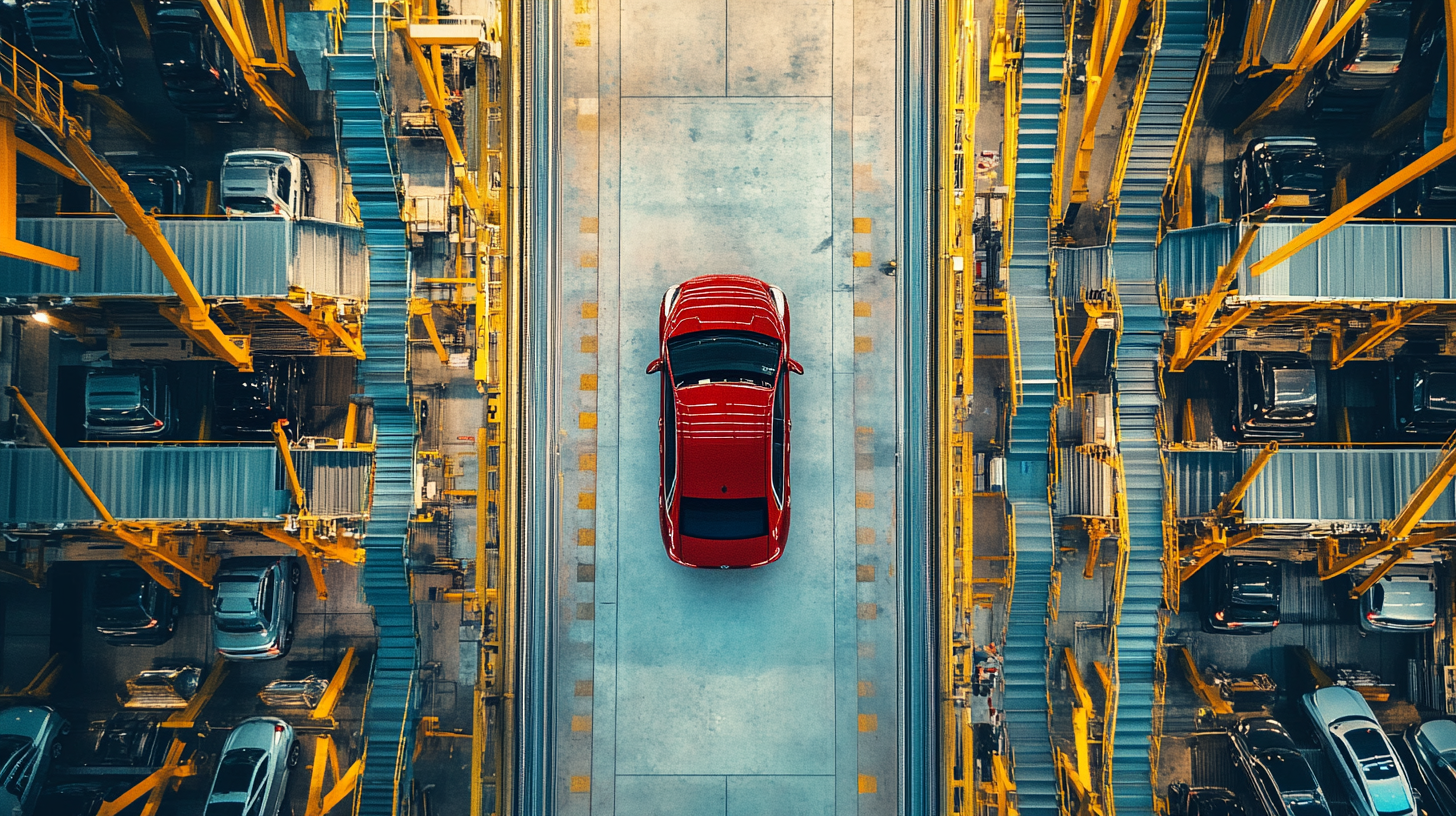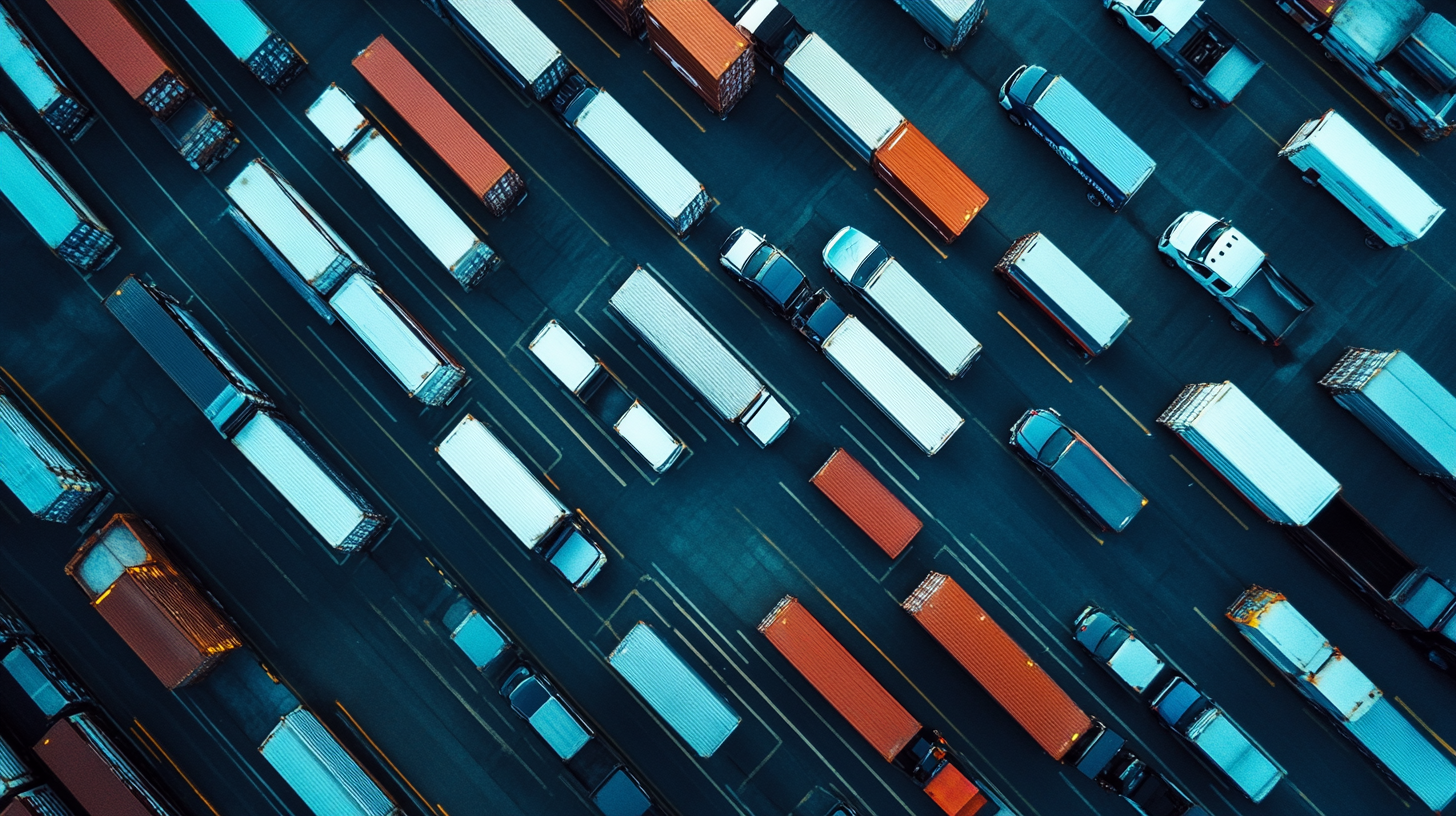Leave Your Message
In today's interconnected global market, sourcing a popular automobile like the Volkswagen Passat requires more than just identifying the best suppliers. Export compliance has emerged as a critical consideration for businesses looking to navigate the complexities of international trade. As the demand for vehicles continues to grow, understanding the legal frameworks and regulations governing the export of automobiles, especially renowned models like the Volkswagen Passat, is essential for ensuring a smooth sourcing process.
This comprehensive guide aims to shed light on the intricacies of export compliance in relation to the Volkswagen Passat. We will explore various aspects of compliance, from understanding export licenses to recognizing the implications of trade agreements. By arming yourself with the knowledge necessary to comply with global regulations, you will not only mitigate potential risks but also enhance your organization's ability to successfully source this iconic vehicle on an international scale.

When navigating the complexities of export compliance regulations, particularly in sourcing vehicles like the Passat, understanding the historical context becomes critical. A prominent example that cannot be overlooked is the significant emissions scandal involving certain popular models. This incident has raised vital questions regarding compliance with environmental regulations and has had far-reaching implications for manufacturers and consumers alike. Ensuring that vehicles meet export compliance standards involves rigorous checks and balances. Regulations around emissions are particularly stringent in many regions, and non-compliance can lead to severe penalties. Importantly, any vehicle that has been linked to deceptive practices, such as manipulating emissions tests, could face scrutiny that complicates its exportability. Therefore, thorough due diligence is essential when sourcing internationally, particularly for products with a controversial history. Moreover, the fallout from past compliance failures underscores the importance of transparent sourcing practices. When sourcing vehicles globally, it's imperative to assess not only the regulatory environment of the importing country but also the reputation and compliance history of the manufacturers involved. Engaging with reputable suppliers and conducting comprehensive inspections can mitigate risks associated with exporting vehicles that may be scrutinized due to their compliance records.

When sourcing Volkswagen Passat models globally, there are several key considerations to keep in mind. First and foremost, understanding the compliance regulations governing both export and import processes is crucial. Each country has specific requirements that can impact the ability to smoothly source and sell vehicles, including emissions standards, safety regulations, and import tariffs. Navigating these complex regulations requires thorough research and possibly the assistance of legal experts to ensure full compliance and avoid penalties.
The evolving landscape of the automotive industry, particularly with the shift towards electric vehicles, also plays a significant role in sourcing decisions. For instance, the recent introduction of an all-electric sedan concept shows Volkswagen's commitment to sustainability and innovation. Sourcing strategies should not only focus on current models like the Passat but also consider future trends and the potential integration of electric and hybrid variants. Companies need to anticipate these shifts to align their supply chains accordingly.
Additionally, the competitive dynamics in the global automotive market require businesses to stay informed about emerging trends and shifts among other manufacturers. As new players start to gain traction, understanding their strategies and how they may affect market conditions is vital for effective sourcing. This awareness enables businesses to adapt their sourcing strategies effectively, ensuring they remain competitive in a rapidly changing environment.

When it comes to the export of the Volkswagen Passat, understanding the licensing requirements is crucial for any global sourcing strategy. The automotive industry is characterized by strict compliance regulations that vary significantly by region. According to the U.S. Department of Commerce, approximately 30% of manufacturers face challenges in navigating these export controls, which can include not only product compliance but also geopolitical considerations impacting global trade policies.
One of the key elements in exporting the Volkswagen Passat involves understanding the Export Administration Regulations (EAR) as governed by the Bureau of Industry and Security. These regulations outline the necessary licensing requirements based on the vehicle's classification. For example, if the Passat contains technology that falls under the EAR, exporters must apply for a license, which can take anywhere from a few weeks to several months to process. A recent report by the Automotive Trade Policy Council indicated that non-compliance can lead to penalties exceeding $1 million, making thorough knowledge of licensing requirements essential for those looking to source vehicles internationally.
Additionally, the harmonization of international trade agreements, such as the USMCA (United States-Mexico-Canada Agreement), further complicates the licensing landscape. Exporters need to ensure that they are compliant not only with U.S. regulations but also with the legal stipulations in the destination countries. Compliance specialists suggest that potential exporters conduct a rigorous review of their product's specifications and maintain clear documentation to streamline the licensing process. Leveraging resources like the International Trade Administration can also provide insights into regional requirements and best practices in export compliance for the Volkswagen Passat.

Navigating export compliance in the global sourcing of vehicles, particularly when dealing with complex brands, requires a keen understanding of the regulatory landscape. Recent events surrounding Volkswagen serve as a potent reminder of the vital importance of compliance in the automotive industry. The maximum sentence for the former compliance chief due to his misleading actions highlights the severe repercussions that can arise from ethical lapses. This demonstrates that organizations must maintain a solid framework to ensure compliance with both domestic and international regulations throughout the vehicle transaction process.
Best practices for maintaining compliance in sourcing and transactions include a robust compliance program that emphasizes transparency and accountability at all organizational levels. Companies should invest in comprehensive training for employees to recognize and manage compliance risks effectively. With technology playing an increasingly critical role, partnerships with trusted technology innovators can further enhance security and compliance protocols. As businesses navigate the complexities of global sourcing, implementing rigorous risk management strategies and adhering to ethical standards become paramount in avoiding pitfalls akin to those faced in previous scandals. By fostering a culture of integrity and diligence, organizations can better position themselves for sustainable success in international markets.
When navigating export compliance for sourcing the Volkswagen Passat globally, it's crucial to identify common challenges that may arise during the process. One significant challenge is the varying standards and regulations of different countries regarding vehicle emissions and safety features. For instance, issues related to the 1.5 TSI engine might affect compliance in markets that have stringent environmental regulations. Importers must stay well-informed about the specific requirements of their target market to ensure that the vehicles meet all local standards.
Additionally, recent recalls highlight the importance of thorough due diligence when selecting models for export. Certain model years of the Passat have been flagged for various problems, which can significantly impact resale value and consumer trust. Similarly, recalls involving critical safety components such as airbags necessitate that exporters verify the status of the vehicles they intend to sell. Awareness of these issues is essential to avoid potential financial losses and reputational risks associated with non-compliance. Thus, proactive monitoring of global automotive news and recalls can help businesses mitigate risks while navigating export compliance for the Volkswagen Passat.
